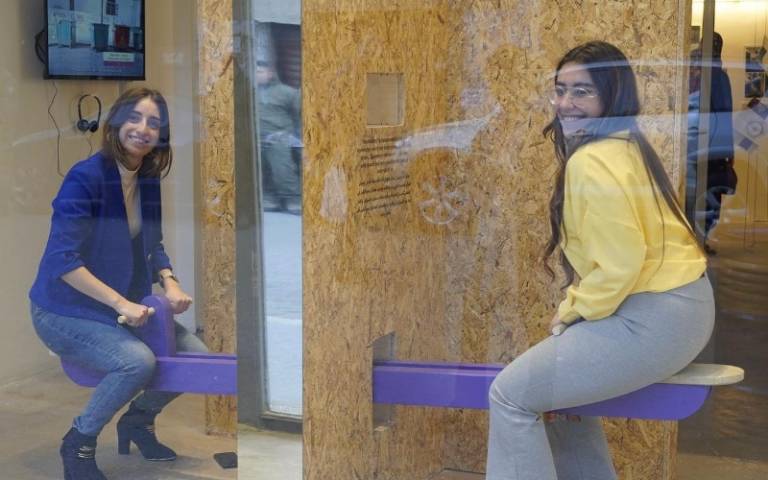Spotlight: Rahaf Zaher
20 February 2024
Meet Rahaf Zaher, researcher at PROCOL Lebanon. Rahef tells us what she's been working on, what prosperity means to her, and the professional achievement she is most proud of.

Could you tell us a bit about your background?
I earned my bachelor’s degree in Biology from the American University of Beirut. Later, my academic focus shifted, leading me to pursue a Master’s in Interdisciplinary Gender Studies at the Lebanese American University. The interest stemmed from early experiences, observations, readings, as well as national, regional, and international events that made me painfully aware of my positionality as a Muslim Lebanese Arab feminist woman on different scales. My increased interest in identities and systems of power was also a result of the intricate social dynamics of Lebanon and the intersecting geopolitical and national systems affecting the country and our everyday lives as its residents.
Could you tell us about a current project you’re working on with PROCOL Lebanon and what you have coming up?
Lately, we have been preoccupied with Lebanon week planning (March 18th to the 22nd) which includes various panels on the politics of decolonial investigation and solidarity, transformative green approaches, and an arts exhibition. I have recently published ‘The role of the French “mandate” in shaping the current Lebanese reality’ blog in Arabic original and with English translation. Additionally, the team and I have recently finalised the English version of the “Livelihood Strategies in Ras Beirut after 2019: Making Ends Meet in Times of Economic Disaster” Working Paper which is based on the quantitative and qualitative data collected in the past couple of years. Aiming to increase knowledge production in Arabic, I am currently working on translating the paper, so you’ll hopefully have access to it in both languages soon!
What does prosperity mean to you?
In the context of the increasing global injustices and the ever-widening schism between the global North and global South, IGP’s realignment of prosperity as prosperity-for-all comes first to mind. I view prosperity as a locally produced imaginary of a better life and the utilisation of practical, achievable, and sustainable research-based initiatives to construct the necessary frameworks to attain it. In this sense, I view prosperity as inherently decolonial as it does not import definitions of prosperity into novel contexts. It also emphasizes that forms of injustice including colonialism, gender-based violence, and capitalism feed into each other and must be addressed holistically for a positive sustainable change. This is critical in Lebanon which is still struggling with residues and threats of colonialism, sectarian corrupt governance, a struggling economy as well as many failed attempts of post-crises recoveries that have only increased the country’s reliance on the international community. With the diminished political role of residents in Lebanon, IGP’s vision of prosperity also returns agency to individuals, reignites their participation in the public political sphere and simultaneously urges decision-makers to reintegrate livelihoods research into policy-making.
What professional achievement or initiative are you most proud of?
I am an early-career scholar and an activist at heart, so joining PROCOL Lebanon under the IGP was a huge achievement and a great opportunity to launch my career, advance my research skills, explore my interests, and try to think of pathways for improvement in Lebanon. Being part of the project this early in my career has also introduced me to a great network of esteemed interdisciplinary academics, practitioners, activists, and artists through PROCOL’s initiatives, conferences, workshops, and exhibitions. I’m most proud of the policy workshop we organised during September 2023 with various researchers and stakeholders not just because it was an enriching event but also because it led to various promising collaborations.
Who is influential to you and why?
Dr. Refaat AlAreer, a Palestinian author, professor, poet, and activist who is also a UCL alumnus who was recently killed in the Israeli bombardment in Gaza. He once said: “Oral History should always belong to the people [and] should shape politics, not the other way around” to emphasise the importance of qualitative experiences and the transmission of life and livelihoods stories for recording history, changing political and lived realities, and fighting oppression. Most importantly, Dr. AlAreer was adamant to give back to his community and was always consumed in transmitting their stories in various languages. Staying true to his words: “If I must die, you must live to tell my story”, he prioritized disseminating his expertise through his academic posts and by mentoring and advising a lot of aspiring academics, launching community initiatives, as well as hosting and aiding language, writing, and storytelling workshops.
Do you have a recent book, film, or podcast that you would recommend?
Professor Ghassan Hage's "Alter-Politics: Critical Anthropology and the Radical Imagination" for its nuanced and transformative political imaginary and social theory and for Prof. Hage's steadfast commitment to his values and political ideal despite the attack on free speech in academia and media
 Close
Close

